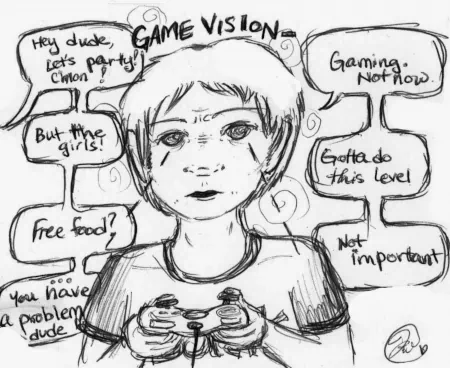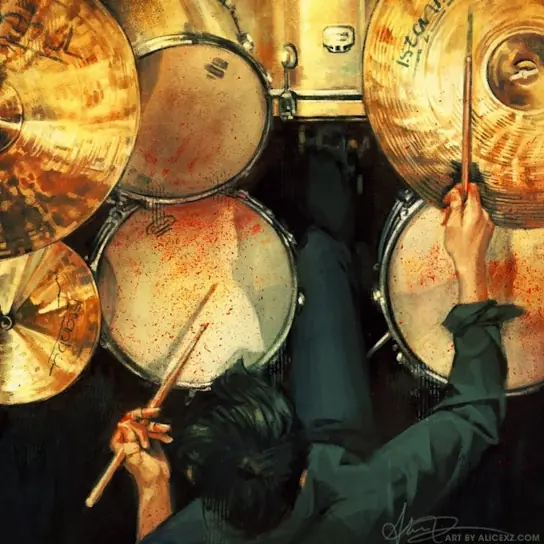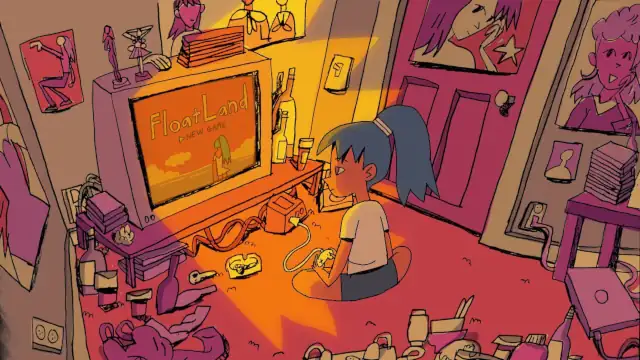 Lately, I’ve noticed some guys in my generation are starting to catch on that
video games may not be too healthy. Seems obvious for older
people and those with an outsider perspective on the subject, but as someone
who has practically defined my entire life around the medium, this is a sad
realization I have come to. For the longest time I constantly fantasized and
daydreamed about video games, and how I would play them and make videos about
them and surround myself with them. They were basically my idol. Not even the
money (I mostly pirated later on), but the amount of time I spent not even
playing, but watching videos and reading about them must be thousands of hours
alone. Before I get too pessimistic, I want to bring up the things about video
games that I think are worthwhile first, because I don’t see it mentioned too
much among normal people, who don’t understand even some basic appeal. For
this, I’d like to use a great example in Undertale.
Lately, I’ve noticed some guys in my generation are starting to catch on that
video games may not be too healthy. Seems obvious for older
people and those with an outsider perspective on the subject, but as someone
who has practically defined my entire life around the medium, this is a sad
realization I have come to. For the longest time I constantly fantasized and
daydreamed about video games, and how I would play them and make videos about
them and surround myself with them. They were basically my idol. Not even the
money (I mostly pirated later on), but the amount of time I spent not even
playing, but watching videos and reading about them must be thousands of hours
alone. Before I get too pessimistic, I want to bring up the things about video
games that I think are worthwhile first, because I don’t see it mentioned too
much among normal people, who don’t understand even some basic appeal. For
this, I’d like to use a great example in Undertale.
Video Games; what good are they?
Now, I know Undertale has a bit of reputation from those who can remember it back at it’s debut. It swarmed itself with a rabid fans that made it their identity, and in that regard it certainly reflects a lot of negative aspects of what video games can do that I’ll mention later, but here me out. The game itself is still probably one of the best games of all time, primarily because the storytelling it accomplishes can only be done in an interactive medium. It’s the greatest logical extent of the “choose your adventure” story books and the traditional role-playing games like Dungeons & Dragons, or something similar. That goes for many games of this ilk as well. The ability to interact and have your decisions play an outcome in the story, though often already set in stone, adds to not only a great sense of accomplishment (in part what gives it an “addictive” nature), but also the incredible deal of immersion that such a medium can offer.
I mention Undertale in particular because of it’s story, writing, music, sound design, structure, gameplay, and even graphics (though I’d argue it’s not the best aspect), but more important than all of those is how they intertwine and combine with one another. Just a good film combines all it’s attributes with music, sound, writing, characters, and so on, even more so do video games have to consider even more variables, which is why it’s so difficult to make a great one, and why people can still consider games like Ocarina of Time, which came out over 20 years ago to date, to be one of the greatest games of all time. What Undertale brings to the table is that it’s usually around 7 hours per run, and three “major” endings to be had. 7 hours would be considered a trilogy in the film world (usually), but three major endings means you can have three “trilogies” so to speak. It’s not the same experience every time either, although the same plot points occur. However, characters will act differently based on your actions, and the writing, music, and overall story will reflect that, with the main divergence being the endings. Even in the video game scene, there are not many games that will really have the multiple endings (if any) be that different from one another. The only other game that comes to mind would be Chrono Trigger, and even then it’s changes aren’t as dramatic and defined as that of Undertale. It’s obvious some very real effort went in to making those (optional) areas and scenes got just as much respect and attention as the alternatives.
Of course, I’m just mentioning that as a particularly big example of what separates it from the rest, but hopefully you understand now where I’m coming from when I ask what use games can be, especially for storytelling, which is my main interest personally.
What’s the problem then?
Remember how I said Undertale is 7 hours long, per run? Some of you who
aren’t into the scene probably thought “gee, that’s kinda long.” As I mentioned
earlier, that would be nearly three movies worth in the film industry. Not
even mentioning if you do multiple runs (which are optional). Even if you
watched it on YouTube instead and saw all the highlights, that’s still a couple
extra hours at least. Those of you who think 7 hours is long obviously have no
idea how long some of these games get, so let’s use some examples from
howtolongtobeat.com.
How Long to Beat is a database of aggregate playtimes recorded for video
games, and if we go to the Stats tab on the top of the page, you are able to
see aggregate ratings for their entire database, which is very useful for our
purposes. Since this has some fluctuation, let’s use the most recent dataset on
the Internet Archive at August 8th, 2023.
Over 63K releases of video games, the aggregate playtime per game is around 18
hours. Per game. Even this number is highly subjective on a person to
person basis, but even as an average, you can see now that if we still measure
this in film metrics, this is approximately 9 films if we count 2 hours per
film. That’s probably more films than average person might see in a year. In
the audiobook realm, the unabridged audiobook for Frank Herbert’s Dune clocks
in at around 20-22 hours. Now, even in the literary world, Dune wouldn’t be
considered a one of the longer books or book series, but it’s still a pretty
thick tome at around 600-700 pages. Keep in mind that listening to an audiobook
also takes less undivided attention that video game does, and activities like
cooking, cleaning, chores, commuting, and even exercise can be done when
listening to audiobook without losing too much meaningful information.
Of course, if we really want to go the distance with this comparison, let’s consider the amount it takes to learn a skill.
The Metrics of Time

Now, 18 hours isn’t even scratching the surface, and in my opinion, it’s a very low estimate based off of (what I assume to be) some “casual” numbers. If you are online often, you may have noticed some memes shared around of some people’s “played hours” count on Steam. Often it’s become a joke to have an enormous amount of hours and in the review say something to the effect of “eh, not really my thing.” Now, for those of you who don’t know, how much do you want to guess? For MMO’s sure, 1K hours may be more expected. How about 22K hours though? Yeah, that’s 22 with three zeros trailing after it. Multiplayer games in general? Hundreds of hours is a pretty safe bet, especially if it’s competitive, though it depends on the game. How about roguelikes or roguelites or other procedurally generated games with no multiplayer? Sure, less playtime overall there, but it still has plenty of people with hundreds of hours, and still some with thousands. Open-world games again have similar if not higher on average playtimes, and it’s a well-known fact that most RPG’s have clocked in about 40 hours on average ever since the Playstation 2 days. There are a lot of those 40-hour RPG’s floating around by the way. Even smaller indie games you wouldn’t expect to have big numbers, like Cuphead, Cave Story+, Cruelty Squad, or even the aforementioned Undertale all have some hours on the Steam reviews you probably wouldn’t think to be possible considering How Long to Beat generally says these games take less than 10 hours (on average) to finish proper. Yet, if you check the reviews on Steam, you’ll see people with some unreasonable amount of hours. I couldn’t even imagine playing Undertale for one hundred hours, and yet there a handful of people who seem to have done so.
Now, you may say that these numbers are outliers, or maybe that Steam’s tracking system could be flawed (it does count hours idling for example), and those are valid criticisms, but seeing these numbers crop up among all of these games indicates something greater. Even 100 hours in a video game is huge time investment. There approximately 168 hours in any given week. Assuming you dedicate 8 hours to work 5 days a week, and 8 hours to sleep, that still leaves 72 hours left during the week. For some people, they fill up all this free time with video games, and it shows pretty well. They may even be sacrificing sleep and work to do it, not to mention relationships and other basic human needs (nutrition, hygiene, etc.).
Everything is a Sacrifice

Those of you who have seen the movie Whiplash are probably aware of one of the film’s key themes, namely what makes someone great. It’s not explicitly answered, but if we observe Neiman’s actions up to the end of the film, we can see that the difference between a mediocre drum-player and an absolutely jaw-dropping one is a matter of sacrifice. Neiman sacrificed nearly everything just to have that chance, and we can see it throughout the film, especially in relationships, but also in the montages of him practicing till his hands start to blister and bleed. However, where this analogy ends is that Neiman’s work can be appreciated by audiences of hundreds, thousands, or even millions of people (thanks to the inception of the internet) and we can appreciate his effort and the beauty of his craft, though it came through some ugly actions, behaviors, and obsession. The difference between people like Neiman and your average “gamer” are that a gamer’s sacrifice doesn’t mean much to anyone. They often sacrifice their off-hours and weekends, in exchange for fake progress in a fake world, that no one really sees.

In addition to this, I’d like to mention vewn’s animation titled floatland. It’s portrayal of “life simulator” games including (but not limited to) Animal Crossing, Stardew Valley, and Harvest Moon as at first, a cozy means of escapism, to ultimately an empty time sink is one that I think has not been portrayed so succinctly or eloquently as is done in her work. Speaking personally from putting a lot of hours in these kinds of games (although I will confess probably not over 150 on each), I completely relate with this. Ultimately, while these games offer “progression”, it’s limited to the game only, and what the animation does is highlight the life behind the person who plays this game and how unlike in the game, she has not “leveled up” in any meaningful way at all. While she improved in farming, cooking, combat, and even finding love in the game, she gained nothing in actuality. When a game like that ends, or there is simply nothing left to do, it leaves an incredibly hollow feeling, as one comes to the realization that all the time in the game was pretty much a waste (if not all of it, most of it for sure), and nothing of actual value has been gained, except maybe a fleeting sense of accomplishment.
The Statistics of Sacrifice
Now, as my ultimate point, I want to highlight some of the things you are able to do with the time you spend playing video games. Funnily enough, I had ChatGPT generate some ideas for me, and I gotta say it’s not too far off point. Here are some of it’s suggestions:
5 Hours
Video Games: In 5 hours of gaming, you might progress through several levels, complete quests, or engage in multiplayer matches.
Alternatives:
Outdoor Activities: You could go for a long hike, exploring new trails and enjoying nature.Creative: You could start and make significant progress on a painting or creative writing project.Learning: You could complete a module of an online course, advancing your skills in a particular subject.Fitness: You could have a thorough workout session, combining cardio and strength training.Cooking: You could prepare a multi-course meal from scratch, trying out new recipes.
10 Hours
Video Games: Over 10 hours, you could achieve significant milestones, unlock new game content, and interact with online gaming communities.
Alternatives:
Reading: You could finish a substantial portion of a novel or read several articles on a topic of interest.Educational: You could watch a few informative documentaries, expanding your knowledge.Personal Growth: You could dedicate time to setting and refining personal goals, journaling, and self-reflection.Arts & Crafts: You could create a complex art piece or complete a more intricate DIY project.Music: You could explore and compile a playlist featuring various genres and artists.
20 Hours
Video Games: In 20 hours, you might make significant progress in a lengthy RPG, complete multiple campaigns, or engage in extended online gaming sessions.
Alternatives:
Learning: You could complete a substantial portion of a comprehensive online course, gaining in-depth knowledge.Fitness: You could participate in an intensive fitness retreat or training camp.Cooking: You could experiment with different cuisines and prepare a weekend-long food extravaganza.Volunteering: You could contribute your time to volunteering at a local event or charitable organization.Outdoor Activities: You could embark on a weekend adventure, such as a backpacking trip or camping excursion.
And now, for some contributions from yours-truly:
500 Hours
Video Games: In 500 hours, you could complete a dozen RPG’s, make extreme progress in a competitive game online, or play dozens of single-player games.
Alternatives:
- The Foreign Service Institute (FSI) estimates you can learn a Category I language to an intermediate to intermediate-advanced level in at least 500 hours (fluctuates on a person-to-person basis). You could be near fluent in:
- Danish
- Dutch
- French
- Italian
- Norwegian
- Portuguese
- Romanian
- Spanish
- Swedish
- Learning: Finish a college semester’s worth of studies.
- Travel: Spend three weeks in a foreign country learning and soaking up the culture.
- Develop an artistic craft to an intermediate level, such as music, crafting, drawing, etc.
- Fitness: Become physically fit to a level to where you can lift above your body weight.
1100 Hours
Video Games: Become max level in an MMO, or play nearly a thousand video games (single-player).
Alternatives:
- Learn a Category II or III language, including (but not limited to):
- Farsi (Persian)
- German
- Greek
- Hebrew
- Icelandic
- Russian
- Ukrainian
- Learning: A year or so at college. Potentially hundreds if not thousands of educational courses on YouTube or similar sites.
- Develop an artistic craft to an advanced level.
- Fitness: Become very strong, being able to lift weight that an intermediate lifter might have trouble with.
2200 Hours
I think you’re starting to get the idea. Best thing I can list here is that this is the limit for the FSI’s language difficulty. With this much time, you could learn any language you want. You could probably become as strong as you want, as artistic as you want, or as traveled as you want. It’s hard to think of what you couldn’t do with this kind of time. Unless you spent it all playing an MMO. Some people unironically do that.
In Summary

Games are art, and art can be beautiful. However, much like carnivorous plants, waterfalls, cliff sides, or the Sirens of Homer’s Odyssey, beauty can be dangerous, and can sabotage you in ways you may not anticipate. It is highly worth considering what games can do for you, and if they are for escapism, are they worth your time? We have the opportunity as human beings to make something decent of our lives and have the ability to impact ourselves, and the communities around us, and video games can often inhibit or exacerbate our current issues as people to such a degree where we do nothing worthwhile for a great amount of time. Let me make this clear: I’m not anti-games, I’m pro-improvement. If video games have grown to a point in their life where you sacrifice all your time and energy into them, then you are worshiping a false idol. You may still believe that to be hyperbole, but from what I’ve shown thus far with how it can suck away your time, is it really that dissimilar? Especially with the emotions of those who constantly consoom video game products and paraphernalia, who seem to be ardent to defend or completely condemn a company with near-religious devotion. Video games cannot save nor really help you, and if it does, it’s only for a small amount of time before you get diminishing returns. However, if there’s one thing video games have taught above all else, is that if you truly put your mind to the test and dedicate yourself to an objective, you can do just about anything.